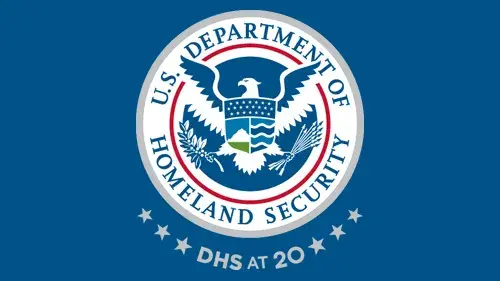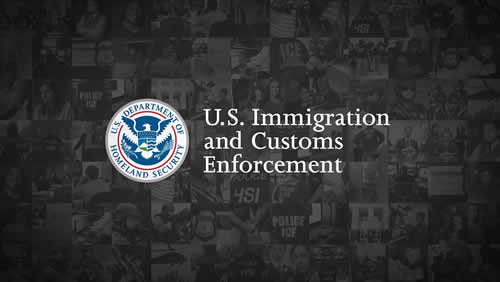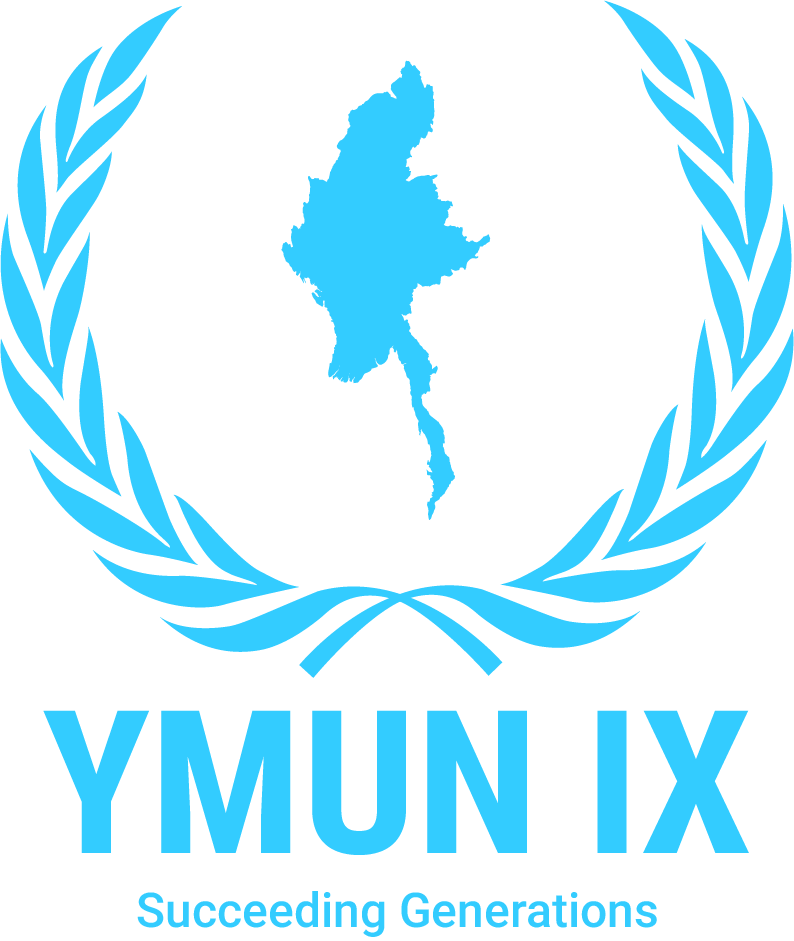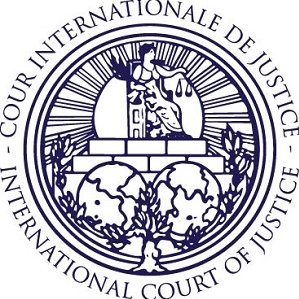Company Directory - Department of Homeland Security (DHS)
Company Details - Department of Homeland Security (DHS)
Department of Homeland Security (DHS)
A federal department responsible for protecting the homeland of the United States, involved in deportation proceedings against Yunseo Chung.
CCI Score
CCI Score: Department of Homeland Security (DHS)
-16.12
0.05%
Latest Event
DHS Detains International Student Amid Questionable Terrorism Allegations
A federal judge halted the immediate deportation of a Tufts University medical graduate student after DHS detained her based on claims that she was engaged in activities supporting Hamas. The detention, which led to legal intervention, reflects an aggressive and politically charged enforcement approach.
Take Action
So what can you do? It's time to make tough choices. Where will you cast your vote?
- Shop Alternatives
SEE ALL - Use Your Voice
OTHER TOOLS - Investigate
- Share the Score
SUPPORT CCI
ENABLER
Department of Homeland Security (DHS) is currently rated as an Enabler.
Latest Events
- MAR282025
A federal judge halted the immediate deportation of a Tufts University medical graduate student after DHS detained her based on claims that she was engaged in activities supporting Hamas. The detention, which led to legal intervention, reflects an aggressive and politically charged enforcement approach.
- MAR252025
DHS initiated deportation proceedings against Yunseo Chung, a 21-year-old Columbia University protester and legal permanent resident, raising serious concerns about the politicization of immigration enforcement. The agency's action, which labels her protest as 'pro-Hamas' and seeks her removal for engaging in political speech, is seen as an authoritarian overreach aimed at suppressing dissent.
- MAR212025
On March 21, 2025, the Department of Homeland Security eliminated key civil rights and oversight offices, reducing transparency and accountability in its immigration enforcement. This move, widely criticized as a political maneuver, undermines protections for civil liberties and reflects troubling authoritarian tendencies.
-80
Public and Political Behavior
March 26
The dismantling of civil rights oversight offices severely undermines democratic accountability and transparency. By removing the checks on immigration enforcement practices, DHS is effectively consolidating executive power and curtailing civil liberties, a move that signals alignment with authoritarian policy methods.
-70
Business Practices and Ethical Responsibility
March 26
By eliminating its civil rights and oversight offices, DHS compromises its ethical responsibility to uphold fairness and protect individual rights. This action diminishes internal accountability mechanisms that are essential for protecting vulnerable populations and ensuring lawful immigration practices.
- MAR212025
The Department of Homeland Security announced cuts to its civil rights and immigration oversight offices, a move that critics argue undermines statutory protections and weakens democratic accountability in favor of authoritarian enforcement.
-50
Public and Political Behavior
March 26
The decision to reduce staff in offices responsible for civil rights oversight signifies a rollback in internal checks and balances. This dismantling of oversight functions can enable unchecked enforcement actions that erode democratic accountability, aligning with authoritarian practices.
-30
Business Practices and Ethical Responsibility
March 26
The restructuring that eliminates essential oversight functions reflects a compromise in ethical responsibility, as it prioritizes operational streamlining over the protection of civil rights. This approach undermines the department's commitment to ethical governance and transparency.
- MAR052025
An analysis of the DHS Office of Intelligence & Analysis reveals structural reforms that fall short, allowing lax oversight and continuing abuses in surveillance and political targeting, which bolster authoritarian practices.
-75
Public and Political Behavior
March 26
The DHS internal reforms have failed to eliminate longstanding practices of politicized targeting and intelligence abuse. The agency continues to use its domestic intelligence capabilities to surveil journalists, protesters, and political dissent, undermining democratic norms and contributing to an environment conducive to authoritarian practices.
-60
Technology and Services Impact
March 26
DHS's employment of surveillance technologies without robust safeguards allows the collection of politically sensitive data, contributing to the erosion of civil liberties. This unchecked use of technology for domestic intelligence purposes reinforces authoritarian methods under the guise of national security.
-40
Business Practices and Ethical Responsibility
March 26
The internal practices at DHS, including maintaining operational guidelines that legitimize broad surveillance, exhibit a disregard for ethical responsibility. Such practices enable politically motivated actions that undermine accountability and ethical governance.
-50
Economic and Structural Influence
March 26
Structural weaknesses within DHS, such as inadequate oversight and blurred lines of accountability, leave the agency vulnerable to repeating past abuses. The ingrained systemic issues facilitate collaborations with local enforcement that propagate repressive measures across communities.
- MAR032025
An analysis of the DHS Office of Intelligence and Analysis transformation reveals continued risks of political targeting, lax oversight, and utilization of repressive surveillance tools, raising concerns about the department's alignment with authoritarian practices.
-70
Public and Political Behavior
March 26
The DHS internal reforms in intelligence operations, though presented as a comprehensive overhaul, continue to enable politicized targeting and diminished oversight. The persistence of vague mandates and lax safeguards facilitates the misuse of intelligence to suppress dissent, target journalists and marginalized groups, and thus contributes to an environment that favors authoritarian practices.
-60
Technology and Services Impact
March 26
The report highlights the DHS's reliance on repressive surveillance technologies and ambiguous guidelines that allow the broad collection of political speech. This use of technology to monitor and suppress dissenting political views demonstrates a troubling alignment with authoritarian practices, undermining democratic norms.
- DEC032024
A GAO report revealed that DHS agencies deployed over 20 surveillance tools in 2023 without proper privacy safeguards, raising concerns over potential abuses of power and state repression.
-80
Public and Political Behavior
March 26
The report highlights that DHS's deployment of various surveillance technologies without adequate privacy protections demonstrates a disregard for civil liberties. Such actions mirror authoritarian practices by enabling invasive state control without sufficient checks, undermining democratic accountability.
DHS Uses Private Spy Tools With Few Privacy Safeguards, GAO Says
-75
Technology and Services Impact
March 26
The article details DHS's use of more than 20 surveillance technologies ranging from drones to license plate readers without adequate oversight or privacy protections. This use of repressive technologies reflects a concerning alignment with practices that can facilitate widespread state surveillance and curtail individual freedoms.
DHS Uses Private Spy Tools With Few Privacy Safeguards, GAO Says
- NOV222024
The Department of Homeland Security's investments in AI surveillance technologies, aimed at enhancing national security in public 'soft targets', have sparked alarm over potential breaches of civil liberties and the facilitation of state surveillance, which critics argue align with authoritarian practices.
-60
Public and Political Behavior
March 26
DHS's strategic push for AI-enabled surveillance in public areas undermines democratic oversight and exacerbates privacy intrusions. The move, while framed as a security measure, effectively escalates the state's power to monitor citizens, pointing to a troubling alignment with authoritarian practices.
-70
Technology and Services Impact
March 26
The development and deployment of AI surveillance technology through initiatives such as SENTRY and the Silicon Valley Innovation Program highlights DHS's deepening reliance on technologically repressive tools. This advancement in surveillance capabilities poses serious risks by enabling automated monitoring that could suppress dissent and infringe on civil liberties.
- AUG062024
The Department of Homeland Security has implemented new policies to pause deportation proceedings and protect immigrant workers from exploitation, thereby reinforcing fair labor practices and the rights of vulnerable workers.
+90
Labor Relations and Human Rights Practices
March 26
DHS has enacted proactive measures to uphold labor rights by pausing deportation proceedings against noncitizen employees and establishing safeguards that deter employer exploitation. This reinforces the department's commitment to protect immigrant workers and supports ethical labor practices, making it a positive contribution against authoritarian policies that suppress worker rights.
DHS Enhances Measures to Safeguard Immigrant Workers’ Rights
- MAY222024
The Department of Homeland Security is rapidly rolling out AI technologies, including facial recognition and social media surveillance, amid fears that these untested systems and low transparency measures could undermine civil liberties and pave the way for authoritarian practices.
-60
Technology and Services Impact
March 26
DHS is deploying repressive surveillance technologies such as facial recognition and extensive social media monitoring without robust efficacy testing or proper privacy safeguards. This approach not only embeds bias but also risks facilitating authoritarian control.
As DHS Implements New AI Technologies, It Must Overcome Old Shortcomings
-50
Public and Political Behavior
March 26
DHS's aggressive implementation of AI technologies, including facial recognition and social media monitoring, coupled with insufficient transparency and oversight, raises serious concerns about its impact on civil rights and the potential to support authoritarian measures.
As DHS Implements New AI Technologies, It Must Overcome Old Shortcomings
-30
Business Practices and Ethical Responsibility
March 26
The rapid, under-resourced adoption of AI within DHS—without adequate safeguards or transparency—demonstrates notable ethical shortcomings in protecting individual rights and ensuring accountability.
As DHS Implements New AI Technologies, It Must Overcome Old Shortcomings
- MAR052024
The Department of Homeland Security (DHS) announced an expedited deferred action process to provide noncitizen workers facing labor exploitation with employment authorization and protection from deportation.
+70
Public and Political Behavior
March 26
DHS's new policy protecting exploited workers signals a commitment to ensuring public safety and protecting civil rights by shielding vulnerable noncitizen workers from the punitive reach of deportation. This stands as a positive countermeasure to authoritarian and repressive practices.
Reports of Labor Exploitation Can Lead to Employment Authorization
+75
Labor Relations and Human Rights Practices
March 26
The expedited deferred action process is a proactive measure that improves labor relations and upholds human rights by offering exploited noncitizen workers legal protection and employment authorization, effectively countering exploitative labor practices often linked with authoritarian regimes.
Reports of Labor Exploitation Can Lead to Employment Authorization
- JAN292024
In January 2024, the Department of Homeland Security, alongside the DOJ, initiated a public comment process on the use of facial recognition and predictive policing technologies. This event, prompted by growing concerns over biased and repressive surveillance practices, highlights a reactive approach to addressing long-standing issues associated with repressive technology deployment.
-20
Public and Political Behavior
March 26
As part of the public and political behavior category, DHS's decision to solicit public comments on contentious surveillance practices was a delayed, reactive measure rather than a proactive step to safeguard civil liberties. This has raised concerns about their accountability and ability to preempt repressive practices.
DOJ funding pipeline subsidizes questionable big data surveillance technologies
-40
Technology and Services Impact
March 26
Within the Technology and Services Impact category, DHS is implicated in fostering an ecosystem for repressive surveillance technologies. Their involvement in funding pipelines that favor facial recognition and predictive policing underscores a troubling reliance on systems that have historically contributed to civil liberties violations.
DOJ funding pipeline subsidizes questionable big data surveillance technologies
- JAN282022
On January 28, 2022, the Department of Homeland Security (DHS) announced significant enforcement actions including a Withhold Release Order and forced labor findings targeting companies exploiting workers. The measures, which include the designation of a Senior Accountable Official to prevent human trafficking in DHS contracts, reinforce strong public and political leadership in safeguarding labor rights and ethical supply chain practices.
+90
Public and Political Behavior
March 26
DHS's proactive enforcement actions and public commitment to barring goods produced with forced labor demonstrate a robust dedication to protecting human rights and upholding ethical standards. Their leadership in leveraging authority to safeguard vulnerable workers aligns well with anti-fascist principles by resisting authoritarian exploitation and ensuring accountability.
DHS Takes Action to Combat Forced Labor and Hold Companies Accountable
+95
Labor Relations and Human Rights Practices
March 26
By issuing Withhold Release Orders and forced labor findings, DHS has demonstrated an unwavering commitment to ethical labor practices and supply chain integrity. These actions hold companies accountable for labor abuses and reinforce international labor standards, cutting off the economic lifeblood that enables forced labor, a key factor in authoritarian exploitation.
DHS Takes Action to Combat Forced Labor and Hold Companies Accountable
- JUL132021
On July 13, 2021, the Department of Homeland Security issued an advisory warning businesses about the reputational, economic, and legal risks of engaging in supply chains linked to forced labor and human rights abuses in Xinjiang. This advisory aims to protect American businesses and uphold human rights standards by urging companies to sever ties with entities complicit in these abuses.
- JUL022020
The Department of Homeland Security (DHS) has initiated increased enforcement actions against companies implicated in sourcing from forced labor in Xinjiang, signaling strong governmental intervention to uphold human rights and ethical supply chain practices.
+80
Public and Political Behavior
March 26
DHS's enforcement action represents a robust public stance against companies that benefit from forced labor, reinforcing democratic values and human rights. This proactive measure demonstrates the department’s commitment to countering exploitation and maintaining ethical governance, which is essential in resisting authoritarian tendencies.
US government to crack down on supply chains linked to human rights abuses in Xinjiang
+75
Business Practices and Ethical Responsibility
March 26
By issuing a joint business advisory and coordinating with multiple agencies, DHS is protecting labor rights and ethical business practices. This move aims to shield vulnerable workers from forced labor and other abusive practices, reinforcing ethical supply chain management and countering exploitative economic practices.
US government to crack down on supply chains linked to human rights abuses in Xinjiang
Alternatives

Washington, USA
-57.38

United States
-72.54

The Hague, Netherlands
58.69

United States
36.10

Mexico
0.12

United States
-5.90

Beirut, Lebanon
-55.89

Washington, D.C., United States
-69.48

Corporation
57.56
Los Angeles, United States
68.62
Industries
- 922190
- Other Justice, Public Order, and Safety Activities
- 926120
- Regulation and Administration of Transportation Programs
- 928120
- International Affairs